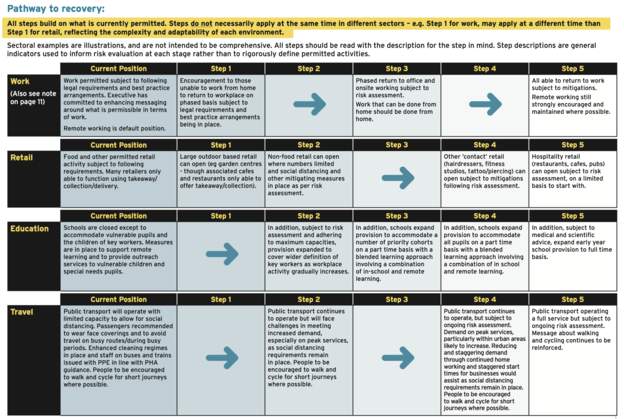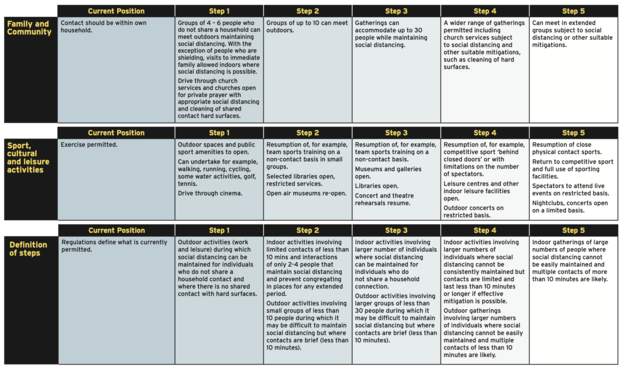 THE Stormont Executive has today published its “pathway to recovery” with five steps for relaxing COVID-19 restrictions.
THE Stormont Executive has today published its “pathway to recovery” with five steps for relaxing COVID-19 restrictions.
But no timetable has been outlined as to when the restrictions will be lifted.
The North of Ireland’s ‘Stay At Home’ restrictions will remain in place until Thursday, May 28 until the rate of death substantially reduces.
The Executive has its own powers to set and lift restrictions at different rates than in the rest of the UK.
The five steps cover working practices, education, retail, travel, sporting and cultural events and contact between families and households.
The regulations, the document says, will be reviewed “within every three week period” and “each process of review should not be read as being linked to the next step of the relaxations”.
In conclusion, the Executive says: “The steps we are all taking are working and, if we continue to work together, they will enable the restrictions to be relaxed in stages when the time is right.
“In the meantime we ask that you continue to adhere to the regulations and follow official advice.
“By doing that, we will be able to remove the restrictions more quickly and restore your freedoms to work, visit and play.”
 Addressing MLAs in the Stormont Assembly, First Minister Arlene Foster said: “We will not be returning to the world as we knew it before COVID-19 for some time yet.
Addressing MLAs in the Stormont Assembly, First Minister Arlene Foster said: “We will not be returning to the world as we knew it before COVID-19 for some time yet.
“We will not be driven by a timetable and we know some will be disappointed by that.”
“The time is not right for making major steps,” says Mrs Foster.
She told MLAs: “Just as there was no rule book for putting restrictions in place, there is no set pathway for lifting the restrictions either”.
She added that “differences and nuances between the UK will emerge” and the North of Ireland will engage with the Republic of Ireland when it comes to easing restrictions.
Deputy first minister Michelle O’Neill said the pathway out of pandemic will require patience from the public.
Ms O’Neill said she knows people “crave seeing loved ones” and businesses want clarity on “when to open”.
She says the executive does not underestimate the severe restrictions that have been put in place.
“Restrictions remain because they are necessary and because they are working,” Ms O’Neill said.
‘Biggest threat is complacency.”
She added; “We are in the midst of the biggest challenge of our lifetime.
“This invisible killer virus is causing loss of life and great hardship to many people throughout our society, across this island and across the world.”
The DFM said that risk based assessments will be made during the plan to determine what restrictions can be eased and “we must be prepared to step forward and step back when needed”.
“We will not keep the restrictions in place for a moment longer than they are required,” said Ms O’Neill.
Tags:




